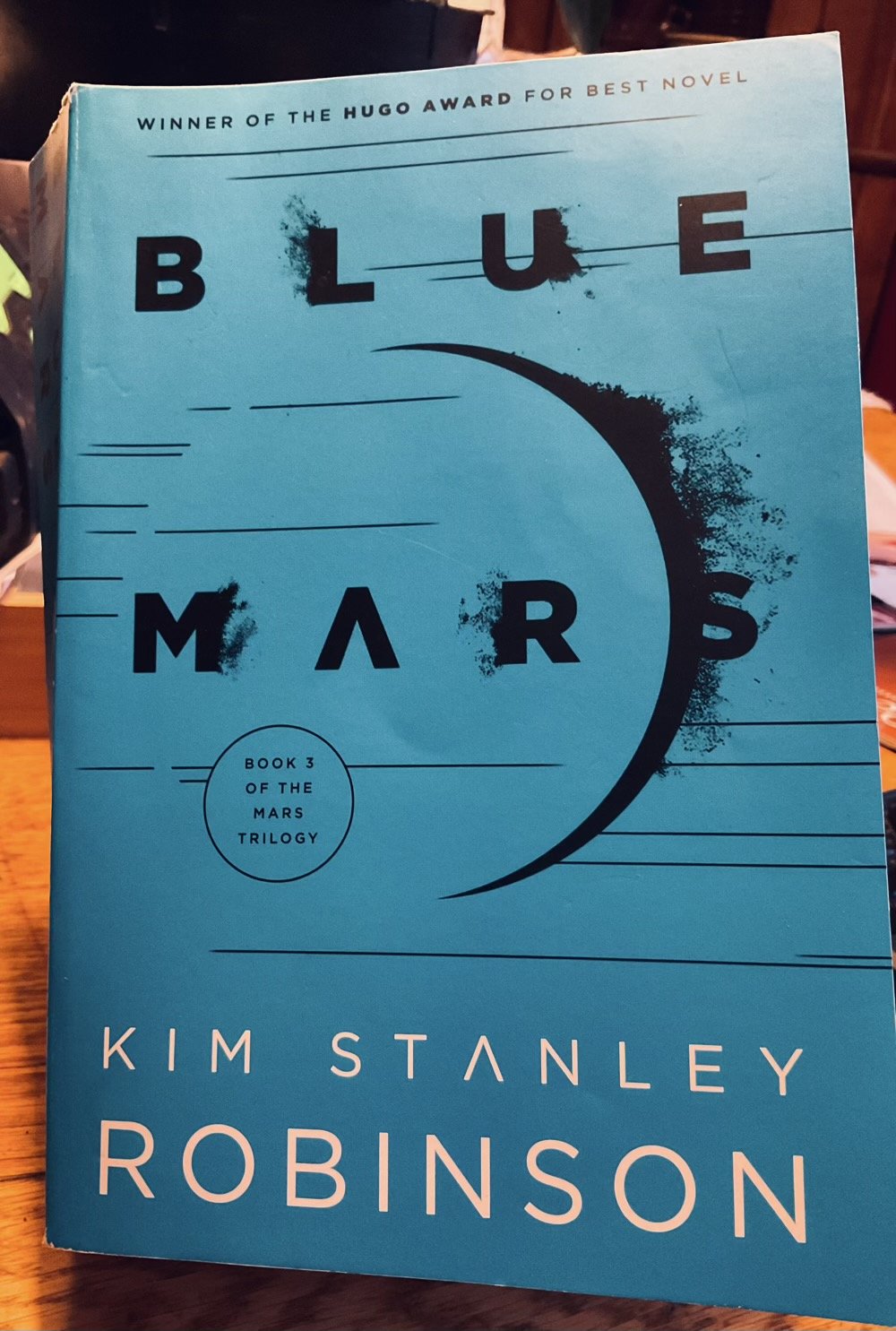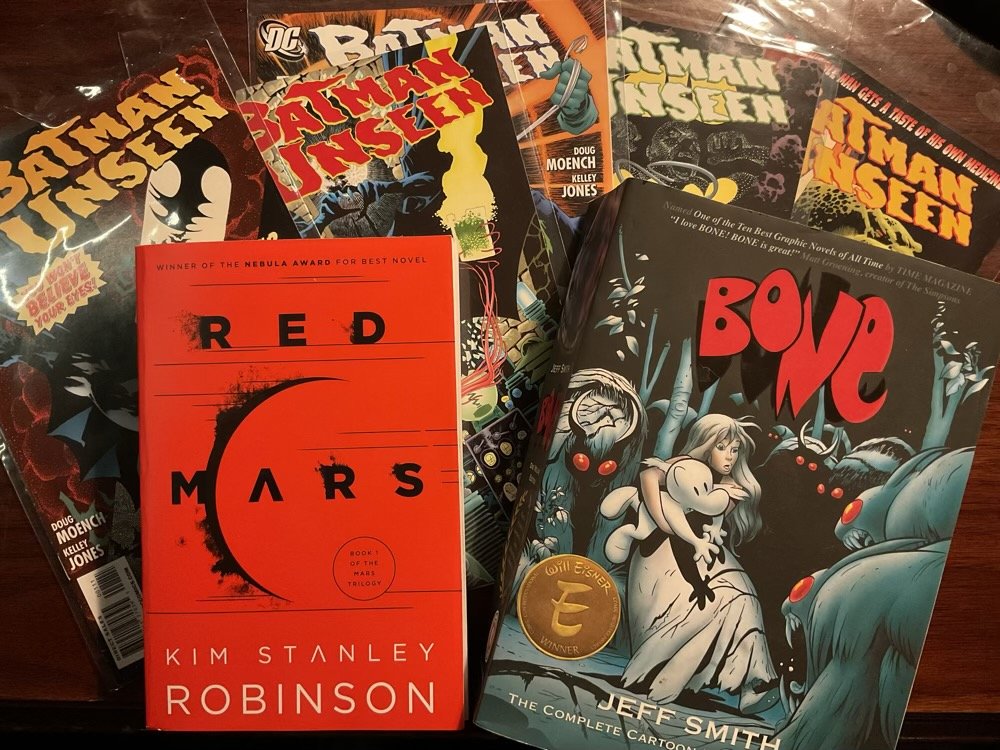****+ / *****
(**** / ***** for the trilogy)
(**** / ***** for the trilogy)

Much as I adored RED I was simultaneously underwhelmed and over- here: Robinson's unparalleled worldbuilding is, as ever, on full display, but the sense of discovery that made RED so irresistible was lacking, both in characters and in reading (due in part, of course, to us, character and reader, having been on Robinson's Mars for decades; a general dulling of wonder is, unfailingly, human – though I'm not sure that employing a retread of the structure of RED was the best choice). Good as it was to reunite with Maya, Coyote, Hiroko, and, most of all Sax, it felt like we didn't have much to talk about this time. Perhaps BLUE will provide a rekindling of the spark.
Robinson hooked me (and many others, it seems) with MINISTRY OF THE FUTURE's near-future (and getting nearer every day) climate apocalypse bureaucracy and doom and solidified it here: RED MARS is sci-fi and worldbuilding at its most intriguing – and prescient.
The closest analogue to MARS I can conjure is Mervyn Peake's GORMENGHAST series, that rare fantasy series which captured my heart and mind (and reminds me I need to procure the other two) with limited characters – as well-drawn and real as flesh and blood – and excruciatingly detailed worlds not my own (indeed, much of my own frustration in my current WIP is that I'm not seeing the world well enough yet, small and tiny though it may be); Robinson made me feel, with each page turn, as though I was there with that first hundred, uncertain of my allegiances, celebrating and mourning and building and destroying with them. Unflinchingly human, all:
"Here they were eating their dinner, talking over the low boom from the north, in a perfect illusion of dining room conviviality; it might have been anywhere anytime, and their tired faces bright with some collective success, or merely with the pleasure of eating together – while just outside their chamber the broken world roared, and rockfall could annihilate them at any instant. And it came to her that the pleasure and stability of dining rooms has always occurred against such a backdrop, against the catastrophic background of universe chaos; such moments of calm were things as fragile and transitory as soap bubbles, destined to burst almost as soon as they blew into existence."
Robinson once said in a City Arts Lecture that you don't write novels as a tool for self-expression but as a way to inhabit the lives of others: RED MARS takes you not just into the minds of deeply drawn and deeply flawed people, but into what feels like each and every dust particle on the red planet; this is a towering achievement. BLUE and GREEN on the docket, but I need to catch my breath first.
My complete reading list, from 2013 to the present, lives here.
Current reads; my complete reading list, from 2013 to the present, lives here.

Finding my way to something in the MainFictionThing by having a document open on the Infinite Canvas based on the Reveries section of Mervyn Peake's TITUS GROAN (currently reading and loving: Gormenghast will be the first fantasy series I've completed): the internal thoughts of all the characters at Titus's birthday breakfast before the next turn happens. Useful exercise even if it's doubtful that I'll use it in the final thing, find the rhythm of characters' thoughts, etc etc.
Combining with something Kim Stanley Robinson said in a recent City Arts and Lectures episode : that the novel (paraphrasing here) isn't a tool for self-expression but rather a way to get inside the heads of your characters, of other people. Playing that up here – not that I'm writing a novel – at least I don't think I'm writing a novel but who knows: maybe this is the inversion of the seven-year paragraph – or maybe a brief flash of getting somewhere before it all comes to a(nother) halt. Whatever it is, I'm going to run with it until I fall flat on my face.